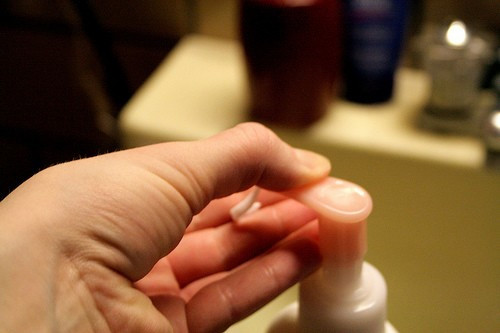Psoriasis Drugs Show No Link to Increased Heart Risks

U.S. researchers say a new, highly effective class of psoriasis drugs showed no link to heart problems after a study, published Tuesday, found that the effectiveness of drugs did not necessarily identify rare safety problems.
The drug, which manufacturer-Abbott Laboratories, Inc. pulled in January, is part of a new class of treatments known as anti-IL-12/23 agents that have been shown to be highly effective at treating psoriasis, but has been unclear if it causes heart risks in the process.
Patients with severe psoriasis are already at increased risk of heart attacks, and doctors are worried the new treatment may increase this risk.
According to the National Institutes of Health, psoriasis occurs when dead skin cells rise to quickly from beneath the layers of skin and pile up on the surface before the cells have matured.
We're concerned about the apparent excess in cardiovascular events, said Caitriona Ryan of the Baylor Research Institute in Dallas, whose study appears in the Journal of the American Medical Association on Tuesday.
Dr. Jerry Bagel, a spokesman for the National Psoriasis Foundation, said he doesn't prescribe Stelara as a first-line treatment for patients who have existing cardiovascular risk factors.
There are some safety signals you are seeing in the treatment groups that are not in the placebo groups. I'm not saying there is a definite association, but there is smoke here, he said.
Ryan said the work exposes flaws in the design of clinical trials, which are powered to show differences in the effectiveness of drugs, but not to identify rare safety problems. We have to find a way of being able to systematically gather safety data for these agents after they are on the market, she said.
Dr. Christopher Ritchlin, a rheumatologist at the University of Rochester Medical Center, who has seen the findings but was not involved with the study, said the analysis does not ease his concerns about drugs in this class.
Health officials from the National Institutes of Health add that psoriasis occurs when the immune system sends out faulty signals that speed up the growth cycle of skin cells, and is not contagious.
Symptoms can range from a mild skin rash to psoriatic arthritis, a potentially debilitating joint condition. The thick patches of red skin commonly occur on the scalp, knees, elbows and torso, but can appear on other parts of the body, according to the National Psoriasis Foundation.
Other symptoms for Psoriasis may include:
- Genital lesions in males
- Joint pain or aching (psoriatic arthritis)
- Nail changes, including nail thickening, yellow-brown spots, dents (pits) on the nail surface, and separation of the nail from the base
- Severe dandruff on the scalp
Health officials say bacteria or viral infections, including strep throat and upper respiratory infections, dry air or dry skin, injury to the skin, including cuts, burns, and insect bites, too little sunlight and alcohol, and stress can trigger the skin disease and make it more difficult to treat.
In July, 30-year-old reality TV star Kim Kardashian was diagnosed with psoriasis, an autoimmune skin disease that affects about 7.5 million Americans. Psoriasis is often misdiagnosed as a rash, ringworm or other skin irritation, such as eczema, according to the foundation.
Psoriasis is not curable, but it is treatable in many forms.
© Copyright IBTimes 2024. All rights reserved.





















